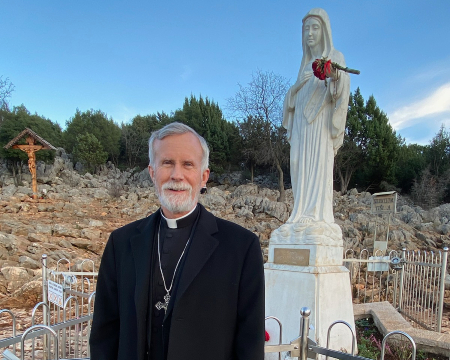We ask you, humbly: don't scroll away.
Hi readers, it seems you use Catholic Online a lot; that's great! It's a little awkward to ask, but we need your help. If you have already donated, we sincerely thank you. We're not salespeople, but we depend on donations averaging $14.76 and fewer than 1% of readers give. If you donate just $5.00, the price of your coffee, Catholic Online School could keep thriving. Thank you.Help Now >
George-Barthélemy Faribault
FREE Catholic Classes
An archaeologist, b. at Quebec, Canada, 3 Dec., 1789; d. 1866. He was a first cousin of Jean-Baptiste, founder of the city of Faribault, Minn., U.S.A. After attending a school taught by a Scotch veteran of Wolfe's army, he completed by personal efforts the course preparatory to the study of law and was admitted to the Bar in 1811. In 1812 he served as a militiaman during the invasion of Canada by the Americans. In 1822 he entered the civil service, attaining in 1832 the rank of assistant clerk of the Legislative Assembly, an office he continued to hold after the union of the Canadas (1841) until 1855, when ill-health forced him to resign. Passionately fond of his Country and of its past glories, he spent all his leisure in collecting docurnents and books pertaining to Canadian history. His fine collection (1700) of rare books and original manuscripts perished at the burning of the Parliament House in Montreal (1849). He courageously began a second collection, which he bequethed to Laval University. Faribault published no original works, merely reproducing and annotating a series of rare historical papers in the transactions of the Quebec Literary and Historical Society, of which he was one of the chief promoters and benefactors. His principal publication is the "Catalogue of Works" relating to the history of America, with bibliographical, critical, and literary notes (Quebec, 1837), which, although superseded by a few later catalogues, ranks among the best. In 1859 he realized the long-postponed plan, conceived in 1761 by Montcalm's companions in arms, of erecting a memorial tablet over the soldier's grave. The epitaph written by the French Academy at the time the subject was first brought up and approved by William Pitt, was duly inscribed. In private life Faribault was the type of the Christian gentleman, modest, hospitable, and charitable. He counted none but friend, and left the record of a blameless career, devoted to the service of God and country.
We ask you, humbly: don't scroll away.
Hi readers, it seems you use Catholic Online a lot; that's great! It's a little awkward to ask, but we need your help. If you have already donated, we sincerely thank you. We're not salespeople, but we depend on donations averaging $14.76 and fewer than 1% of readers give. If you donate just $5.00, the price of your coffee, Catholic Online School could keep thriving. Thank you.Help Now >








 Daily Readings for Saturday, April 20, 2024
Daily Readings for Saturday, April 20, 2024 St. Marian: Saint of the Day for Saturday, April 20, 2024
St. Marian: Saint of the Day for Saturday, April 20, 2024 Children's Prayer For Parents: Prayer of the Day for Saturday, April 20, 2024
Children's Prayer For Parents: Prayer of the Day for Saturday, April 20, 2024

